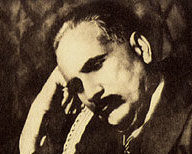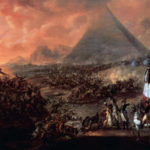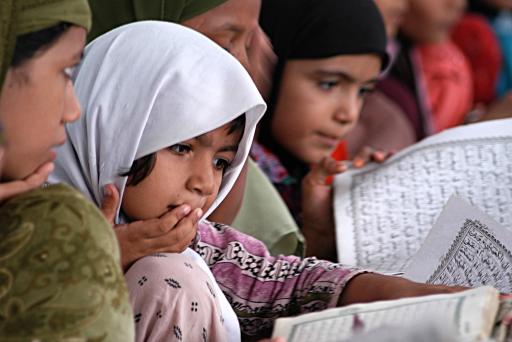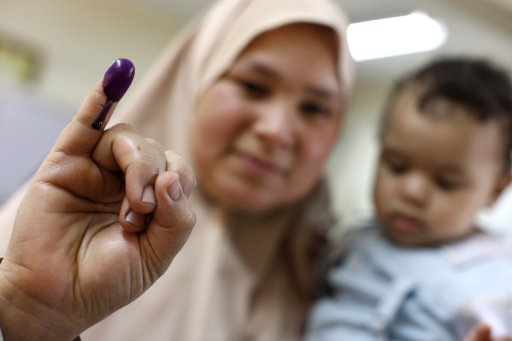
The question of renewing Islam has been the abiding preoccupation of many Arab Muslim thinkers since the 19th century, but the efforts of most of these went to the four winds. None of these efforts achieved anything more than a very limited degree of reform and renewal. And despite this limited scope – particularly in matters concerning women – any reform and renewal that was achieved did not last long.
THE ARAB MUSLIM WOMAN reverted to the status that she had in the 19th-century – the hijab returned, as did the niqab and the call for women to stay in the home and not leave it, just as we see in the calls made today by the neo-Salafists in Egypt.
Before we explore the power of liberals to renew Islam let us define what it is that we mean by this expression ‘renewal of Islam’. The celebrated Indian thinker and poet Muhammad Iqbal wrote an important work, a distinguished yardstick in the subject entitled: “The Reconstruction of Religious Thought in Islam“. What I found remarkable in the title of this book was that it was given as the reconstruction or renewal of religious thought in Islam, not the renewal of Islam. For what we really need today is a renewal of ‘religious thought’, a renewal that rises to the challenges of the modern age and its widely predominating values. In the preface to his book Muhammad Iqbal justifies the need for his call to renew religious thinking in Islam thus:
The modern generation, by virtue of the development that it has achieved in modes of thinking, has become accustomed to objective thought, that type of thought which Islam itself fostered at least in the earlier stages of its cultural history.
We, the Arabs, are a deeply-rooted people. But is this deep-rootedness the cause of our constant regression to our past and our inability to accept renewal? The Tunisian thinker Lafif Lakhdar affirmed that peoples with deep-rooted traditions feed their regression with their glorious past and are indeed incapable of accepting renewal. Heritage should embrace change, renewal and action so that what it can bring to us can be made to serve life. Otherwise this heritage becomes a museum piece, something fit for amusement and recollection and no more.
As the Tunisian scholars Rashīda and Fathī al-Tarīkī put it, modernity is
a state arising from a chronological development that allows the automatically self-renewing current situation to express, in one form or another, the spirit of the age.
One of the obstacles to the progress of modernity in Arab society and Arab thought is the difficulty of heritage and the way in which one handles it. This is the fate of the Arab Nation, and it is something we have to live with if we are to survive. Any attempt to escape from it would merely be to temporarily outrun it – it would soon catch up with us again. Setting our house in order with it is less difficult than setting our house in order without it, for renewing heritage will be a less dangerous option than ignoring it, even if the renewal requires a long time and demands a high price.
Peoples with deep-rooted traditions feed their regression with their glorious past
The Arab heritage is not merely an ‘issue’, but rather a principal axis around which many political, economic, intellectual and social problems revolve. One of these is the problem of modernity – for Arab thought remains confused, errant, ambiguous, obscure and hesitant when it deals with issues of heritage.
Renewing religious thinking requires the following practical steps:
1 – That the intelligentsia – the liberals in particular – take up the issue of reconstructing the religious mindset since they possess depth and breadth of culture and have wider horizons. The function of the free intellectual in this case is to defend truth against the clamour of the masses, to defend the intellect against blind repetition, cogitation against excommunication, renewal against regurgitation, modernity against archaism, progression against repetitiveness and historical change against supra-historical fixèd points (that is, those that are claimed to be valid for all times and places). It means defending intellectual and social progress against sickly, sterile stasis vis-à-vis science and history, the necessity of self-criticism in step with its age against narcissistic, backward self-glorification that retards consciousness, the joining – intellectually and emotionally – of the global village against schizophrenic introversion towards ‘identity’ and, finally, it means defending civilisation against a descent into barbarism.
2 – That the only entry point to reform is to be through religious renewal in matters of substance and of doctrines associated with the syllabuses of schools and theological colleges, of Sharīʻa groups that indoctrinate legal teaching; or through renewal in technical skills and in public education teaching methods that are to be appropriate for the requirements of present reality and our cultural particularities. The renewal demands the application of consistent principles and methods, it requires qualified experts recognized by the scholars and specialists of repute.
3 – That reform and renewal should not be subjected to outside influences other than what may take place through an unintentional, superficial coincidence. We should learn a lesson from American leaders themselves who over a quarter of a century ago held that “those that interfere in our educational methods we will consider as having declared war on us”. To behave like this means to turn any discussion of these issues into a challenge, and so it is therefore a question of isolating the question of foreign American pressure from these pressing necessities, so as to make progress along the path of Islamic legal renewal. The starting point should be the urgent needs of Arab Islamic societies, which the requirements of contemporary development and cultural resurgence demand be met. If we surrender to the thinking that any discussion on renewal in the religious mindset is to be considered an American plot against Arabs and Muslims, we will only end up falling into the trap of denying the need for religious reform and postponing to some indeterminate date any investigation into this issue. Such things will only exacerbate the Arab Islamic cultural crisis for many more decades and might even lead to the departure of Arabs from history altogether, or more precisely to their departure from any hope of a future. For instead of hastening to adopt measures of reform and renewal in all aspects of life in Islamic Arab societies, the present state of the Arabs is becoming worse and ever more crisis-ridden.[1]
4 – That religious fundamentalism should distance itself from futilities in the question of the renewal of religious thinking in Islam. Fundamentalism is merely a mania for purity; the purity of roots, the purity of identity and the purity of language from bad grammar or new turns of phrase, and conversely it is a fear of development and renewal.
If we wish to benefit from the coming globalisation in the Arab world we shall have to work to deepen our critical sense and insist on innovation and renewal.
Fundamentalism is merely a mania for purity; the purity of roots, the purity of identity and the purity of language
The liberal and religious trend on the road together
The late ‘Abbās Mahmūd al-ʽAqqād in his book Islam in the Twentieth Century: its Present and its Future, confirmed that it is the liberals who are the most able to revive religious thought and cites the evidence of the British historian Arnold Toynbee and the British scholar Hamilton Gibb, professor of Arabic and Islamic studies at Oxford University, who both confirmed and acknowledged that the revival of religious thinking in Islam begins with the liberals, and that the process of revival starts from cities where the liberals reside – for it is rare for any revival to initiate in the provinces. The researcher and academic Wilfred Cantwell Smith, professor of Islamic history at the Indian Aligarh University, notes that the proponents of renewal confirmed the capacity of Islam for culture and civilisation, and A.S. Tritton, professor of Oriental studies at London University, also confirmed that liberals such as the Indian Muhammad Iqbal and the Egyptian Shaykh Muhammad ‘Abduh were more than any others capable of initiating such a revival.
As liberals we are not arrogant, we are not disdainful nor do we consider ourselves above others. We know, right from the outset, that electoral success has often gone to the religious current for many reasons, some of them the following:
- The Arab street is a religiously observant street in the popular type of religiosity. It trusts in the men of the cloth more than it trusts the élite effendi or the liberal, and it follows the actions and words of these clerics with a well-nigh blind obedience;
- Poverty, hunger, material needs – only the religious current are relieved of these, since it is materially rich due to the gifts and grants it receives from wealthy Arabs that support the religious current financially and politically;
- The Arab voter is not a Swedish voter or a Dutch or British voter with a deeply rooted political culture that can distinguish between two candidates and their political programmes – illiteracy amongst the electorate still hovers at around 30% to 50% in most Arab countries, and perhaps stands at a higher percentage in Egypt.
- The electoral programs of the liberal parties were not clear, or realistic, or understood by the mostly illiterate Arab electorate who are unable to sort the wheat from the chaff between political differences. What is more, liberal party programs featured expressions and slogans which the religious current was able to write off as ‘imported ideas from infidel countries’ such as ‘democracy’, ‘liberalism’, ‘modernity’, ‘secularism’ and so on. Those liberals that won in many of the Tunisian, Moroccan and Egyptian seats did so covertly under the guise of one of the religious currents. If the voters had known that those whom they were electing were secular liberals calling for the separation of religion from the state they would not have voted for them, and their fate would be one of failure in the forthcoming elections.
- Most of the hardline religious slogans of the electoral campaigns – ‘No tourism from this day onward’, or ‘the Copts are dhimmis’, or ‘Women to stay at home’ and so on – will not be able to be applied on the ground in the current Arab world in the wake of the communications and information revolution, the spread of globalisation and the transformation of the world into a universal electronic village. For this village is governed by a host of new values and laws whose application is unstoppable – if the citizen is to escape poverty, hunger and complete political isolation. Perhaps the experience of the Hamas movement in Gaza is best proof of this.
What liberals are calling for, first and foremost, is freedom and democracy. The religious current does not repudiate such a call but demands that limitations be imposed upon them, for it does not shackle freedom so much as codify it, placing it within defined bounds of laws and systems. When Islam emerged in the seventh century AD it did not restrict the general freedom of Arabs or repudiate it or cancel out many of these freedoms, but rather kept them in place just as they were, albeit codified. It gave it a framework, systems and laws to regulate its activity and how to engage with it.
Most hardline religious slogans cannot be applied on the ground
We now live in an age of wide, varied freedoms which need to be looked at and codified by ourselves to see how they harmonise with our upbringing and our make-up. These freedoms for the most part hail from the West which is more advanced than us in consciousness, science, culture, economy, politics, weaponry and skills, while we lag far behind. Perhaps some of these freedoms suit the West more than us, or are more valid for them and more beneficial while they may harm us and so on. So we should take a look at them – both liberals and those of the religious current – with a critical eye and motivated by a spirit of reconciliation rather than division, of systemising rather than rejecting, seeking that which is useful and not that which may harm us.

Suggested Reading
Diagnosing the Arab Muslim Mentality as a Precursor to Reform
Liberalism is founded upon the principle of individual freedom since, in the words of the Palestinian thinker Hāzim al-Qawāsimī:
the individual is the foundation, and freedom and choice are the cornerstone of the philosophy of liberalism.[2]
Pure Islam came to reform the position of individual and grant him a true humane status. It confirmed his freedom to think, and subsequently his freedom to choose – the Qur’an is replete with principles of this kind. Liberalism, along with an awakened religious current, that is one which is not hardline, will embark upon this path together once they have settled down from the stresses of the electoral contest. Liberalism believes in civic culture which is the foundation for the building of Mankind[3] and
the foundation of this building, as history has confirmed, are the noble values of truth, benevolence and freedom.[4]
Liberalism shares with Islam this civilisational value – there is no conflict between liberalism and Islam nor is there any difference between the two with respect to this value.
We hope that both liberals and those of the religious current can grasp these truths so that they can work together, and embark together upon a single path, for the sake of building up those nations which have lived through these Arab revolutions.
[1] العرب بين التجديد الديني والإصلاح السياسي (‘The Arabs Between Religious Renewal and Political Reform ‘) by the Saudi academic Abdallah Salman.
[2] الليبرالية في العالم العربي, رؤى وتصورات لسياسيين العرب p.18. Hāzim al-Qawāsimī is the head of the Association of Young Entrepreneurs and a member of the management board of the Observatory of the Arab Wo
rld to Democracy and Elections.
[3] As Sā’id Karrāja, a Jordanian liberal academic and member of the Royal Committee for Development and Education and the Higher Committee for Women’s Affairs put it.
[4] Qawāsimī, op cit., p.28.
Main image: Muhammad Iqbal (1877-1938), philosopher,scholar and politician, and author of The Reconstruction of Religious Thought in Islam.


